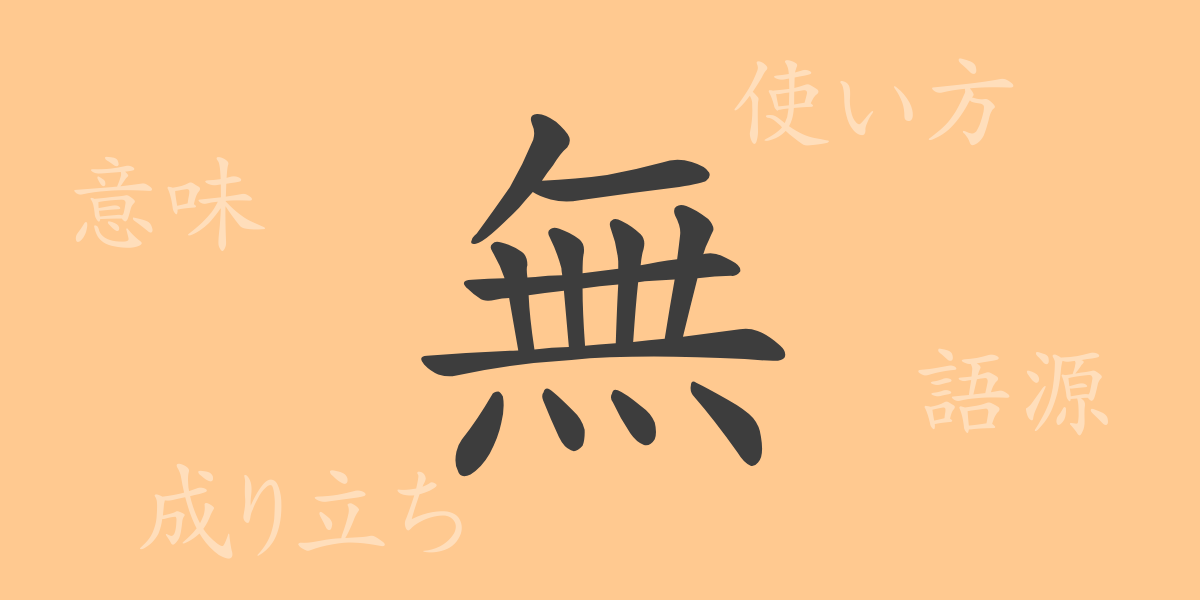Japanese culture is imbued with a unique sense of aesthetics. Among these, the kanji (漢字) “無” (mu) holds significant elements that symbolize the spirituality and philosophy of the Japanese people. In this article, we delve into the profound meaning hidden within the character “無” (mu), exploring its usage and related idioms. Let’s embark on a journey through the world of “無” (mu) while appreciating the depth of the Japanese language.
The Origin of 無 (mu)
The kanji (漢字) “無” (mu) is a character that originated from ancient China, and its shape is said to represent an empty mouth. Originally, it meant the absence of something, in other words, “nothingness,” and its etymology lies in being the antonym of “有” (aru), which means “to exist.” Over time, “無” (mu) has also come to be used as a character representing philosophical concepts and abstract states.
The Meaning and Usage of 無 (mu)
The kanji (漢字) “無” (mu) primarily means “nothing,” “non-existence,” or “lack.” In addition to the negative connotation of “nothingness,” it is also used to denote transcendent states such as “infinity” or “unconditional.” In Japanese, many words and expressions are created using this character, and it is frequently seen in everyday conversations and literary works.
Reading, Stroke Count, and Radical of 無 (mu)
How is the kanji (漢字) “無” (mu) read and structured in Japanese?
- Reading: In on’yomi (音読み), it is read as “ム” (mu), and in kun’yomi (訓読み), it is read as “ない” (nai).
- Stroke Count: The kanji (漢字) “無” (mu) is composed of 12 strokes.
- Radical: The radical is “火” (hi or hihen).
Idioms, Proverbs, and Phrases Using 無 (mu) and Their Meanings
There are numerous idioms, proverbs, and phrases that include the character “無” (mu). Here are some examples:
- 無常 (mujo): The constant state of change; the idea that nothing is eternal.
- 無欲 (muyoku): Lack of material desires or greed.
- 無理 (muri): Something unreasonable or forceful.
- 無駄 (muda): Something useless or unproductive.
- 無我 (muga): Engaging in something with selflessness.
These idioms and proverbs are deeply connected to Japanese values and ways of life.
Summary of 無 (mu)
The kanji (漢字) “無” (mu) holds a special place in Japanese culture due to its simple yet profound meaning. It influences a wide range of aspects, from everyday language to philosophical thought, and the concept of “無” (mu) can be said to reflect the Japanese spirit. We hope this article has allowed you to appreciate the various nuances of “無” (mu).

























